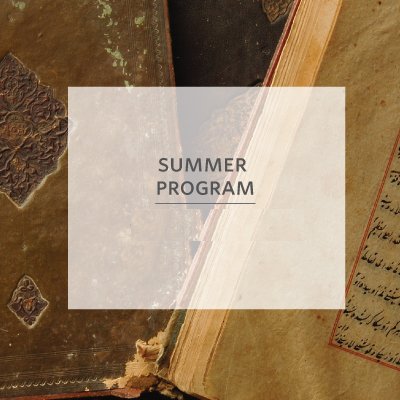
All class times are CST
This course is intended to introduce students to Hadith methodology and literature. Students will explore the discipline of prophetic transmission through an epistemic lens, as adopted by orthodox Sunni scholarship throughout the centuries; cover core concepts and terminology, including the classical definition of Sahih (authentic) Hadith; and learn about key figures and authorities that set down the foundation for the science. Students will also gain insight into the robust method of criticism employed by the experts within the field.
Throughout the duration of this course, we will conduct an in-depth study of the last ten chapters of the Holy Qur’ān. Through our learning we aim to cover the essential commentary of each verse and further understand the translation of each word of these chapters.
After the completion of this course, students will have learned fundamental lessons derived from the chapters of the Qur’ān that enables them to gain a newfound appreciation for these often-recited verses.
This course will comprise of an intense introduction to basic rules of Naḥw (syntax) and Ṣarf (morphology) in addition to readings in beginner-level Arabic. Theoretical grammar concepts will be learnt through “Ten Lessons of Arabic,” whereas the readings will use “Lessons in the Arabic Language for non-native speakers [Durūs al-Lughah al-‘Arabiyyah li Ghayr al-Nāṭiqīn bi-hā].” Class-time will be distributed between the two texts. Students are expected to complete daily assignments and weekly assessments. During the second half of the course, students will be formed into groups and tasked with re-teaching the grammar lessons learnt.
Prerequisite: Strong ability to fluently read from the Muṣḥaf and navigate relatively-heavy theoretical (kullī) and practical (juz’ī) learning
The course will discuss Ḥanafī jurisprudence from Marāqī al-Saʿādāt authored by Abū al-Ikhlāṣ al-Shurunbulālī (d. 1069/1659).
Course Objectives
Required Text: Ascent to Felicity: A Manual on Islamic Creed and Ḥanafī Jurisprudence by Abū ʾl-Ikhlāṣ al-Shurunbulālī explained by Faraz A. Khan & published by White Thread Press.
For supplementary reading students can use Imam Abu Ḥanīfah’s Al-Fiqh al-Akbar explained by Abdur-Rahman ibn Yusuf published by White Thread Press.
I was able to relearn my religion in an intellectual atmosphere. I was able to spiritually grow through learning about the 40 ahadith of Imam Nawawi from a seasoned hadith expert scholar, I was able to delve into the Tafsir of the last 10 Surahs of the Qur’an and learn from a renowned Qur’an scholar, and most importantly I was able to learn the tenants of our faith and fundamentals of our beliefs from a knowledgeable and passionate theologian.
I was enrolled in the summer Arabic intensive. Studying proper grammar was a very eye opening experience and opened many doors for me in studying and understanding the foundational texts of our deen, and most importantly being able to begin to appreciate the Qur’an at a higher level. I would recommend Darul Qasim to each and every Muslim who seeks to learn their deen, including professionals, for which they are accomodating.
More than education, Darul Qasim provides a culture where students can strengthen their relationship with Islam and develop a strong Muslim identity. The recently renovated serene campus provides a religious space which I called my second home. Education in DQ helped tremendously in my MDIV degree to become a Muslim Chaplain with sound Islamic educational background. I have left a piece of my heart there. My soul still yearns to go back and fulfill the need of further learning about my faith.